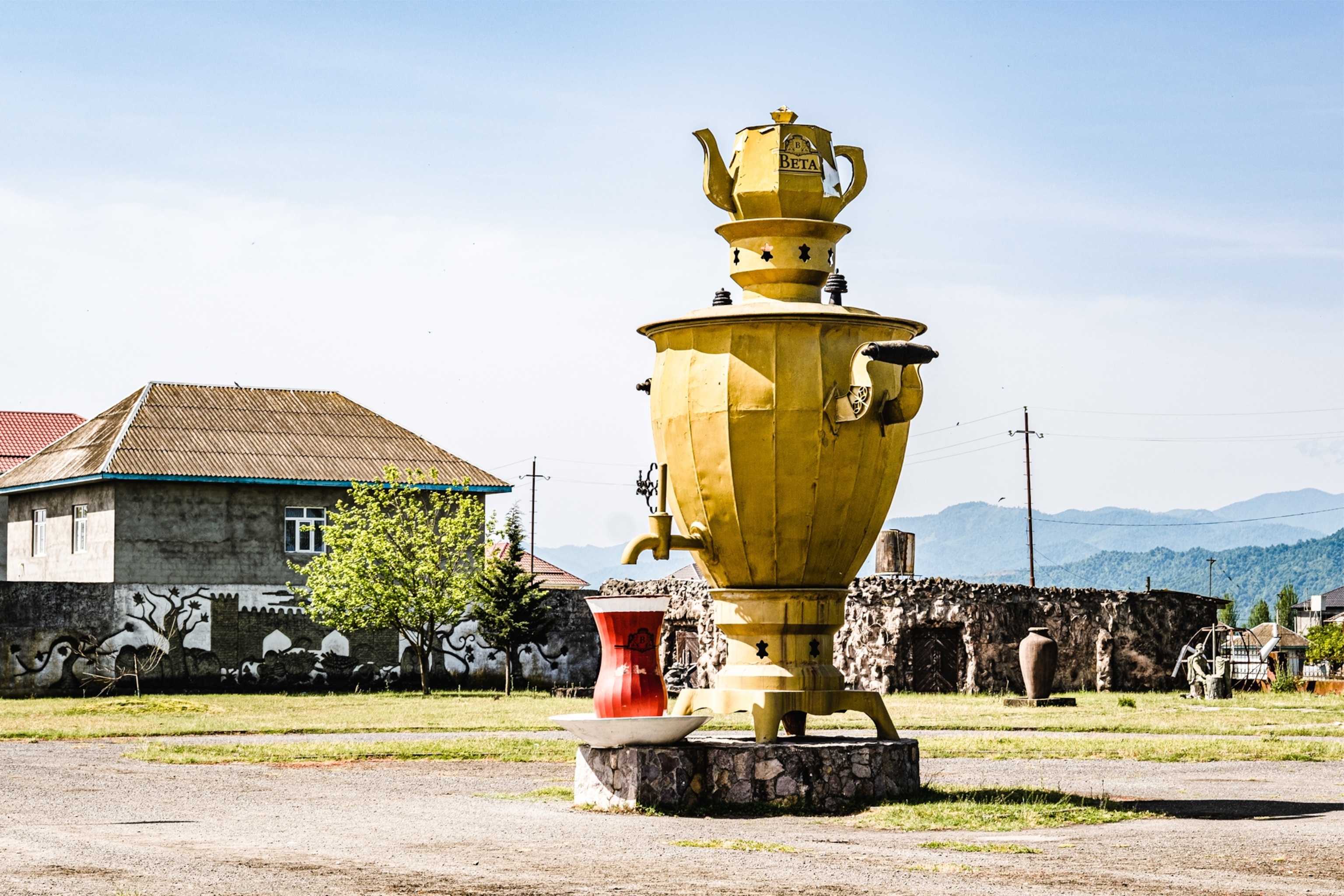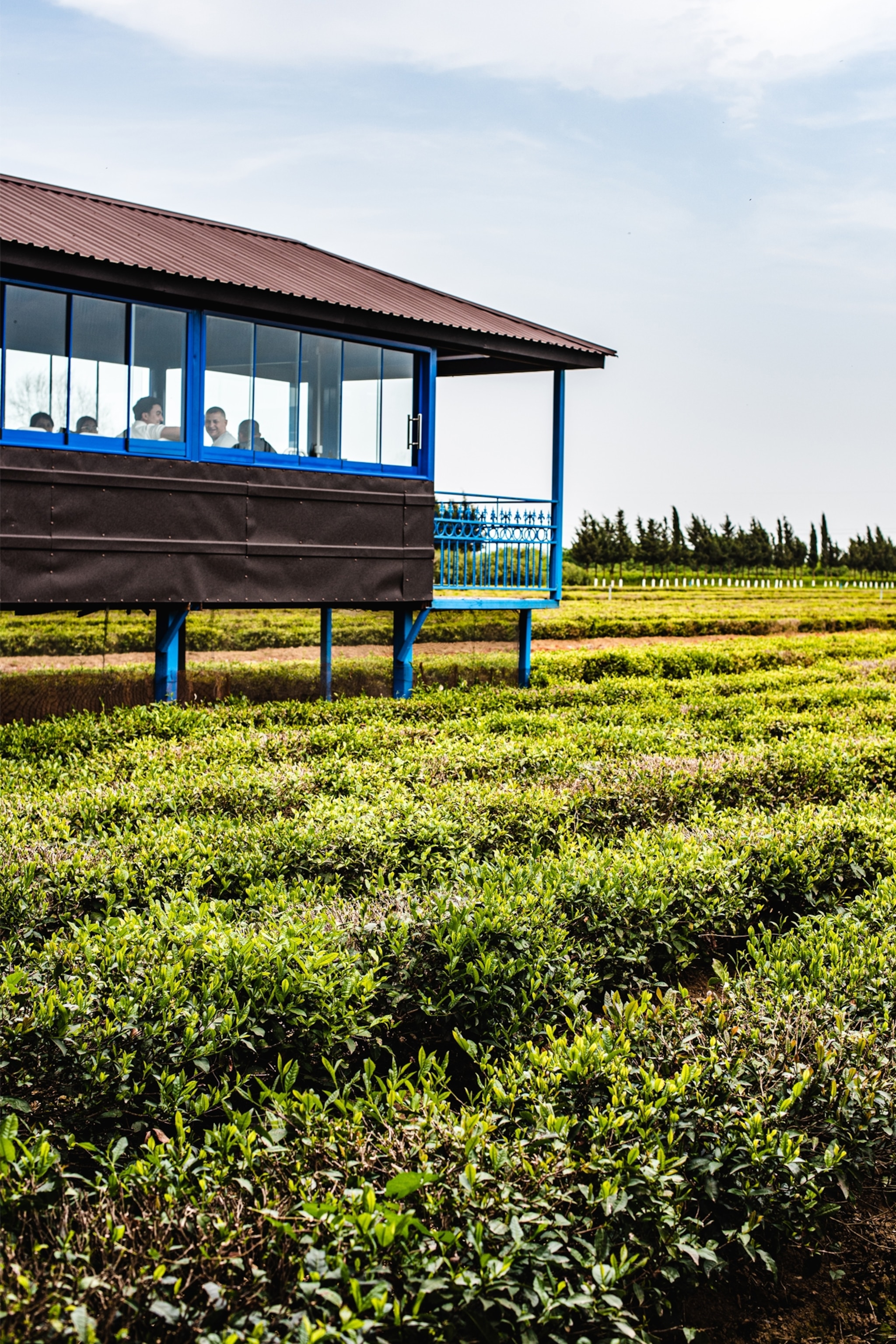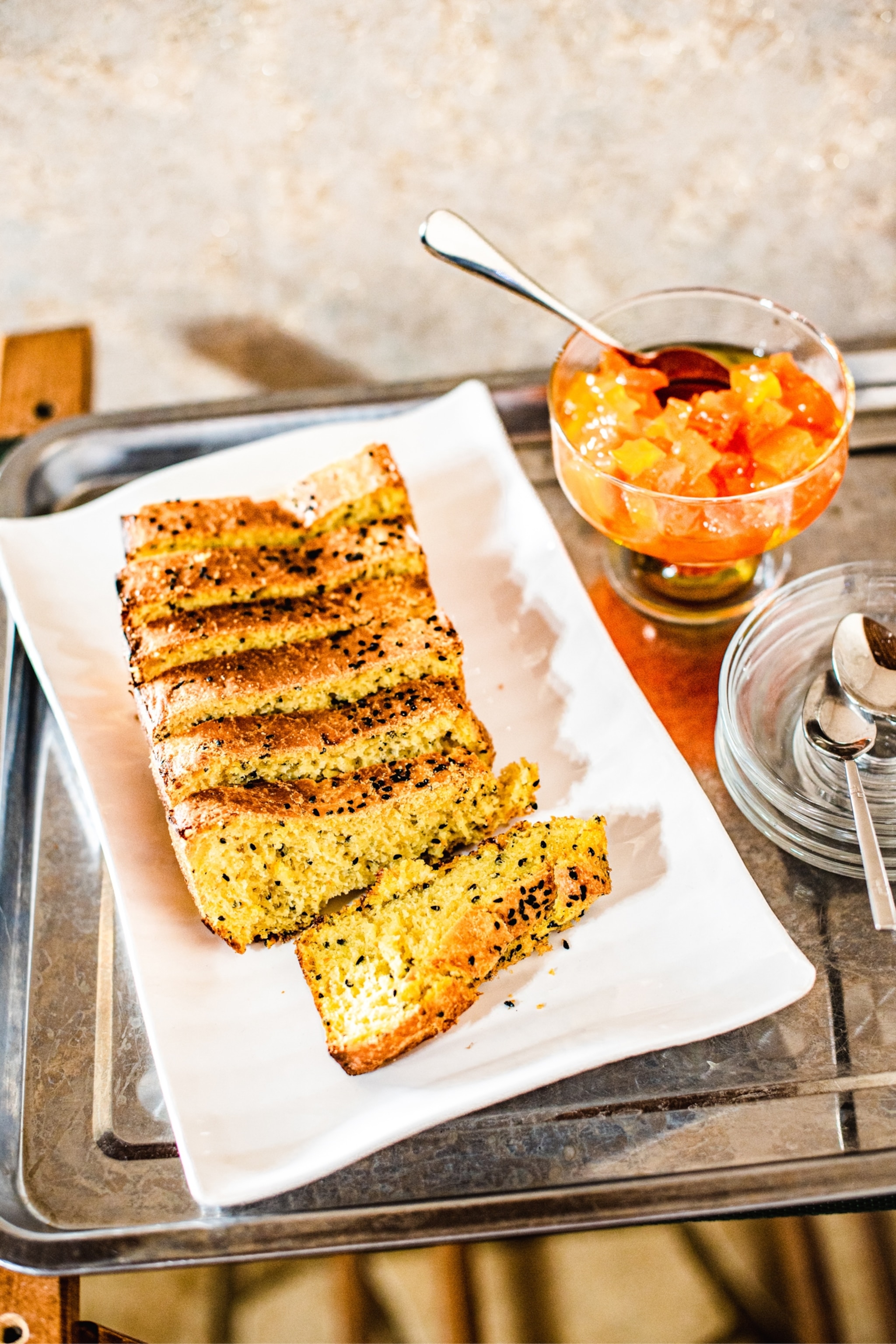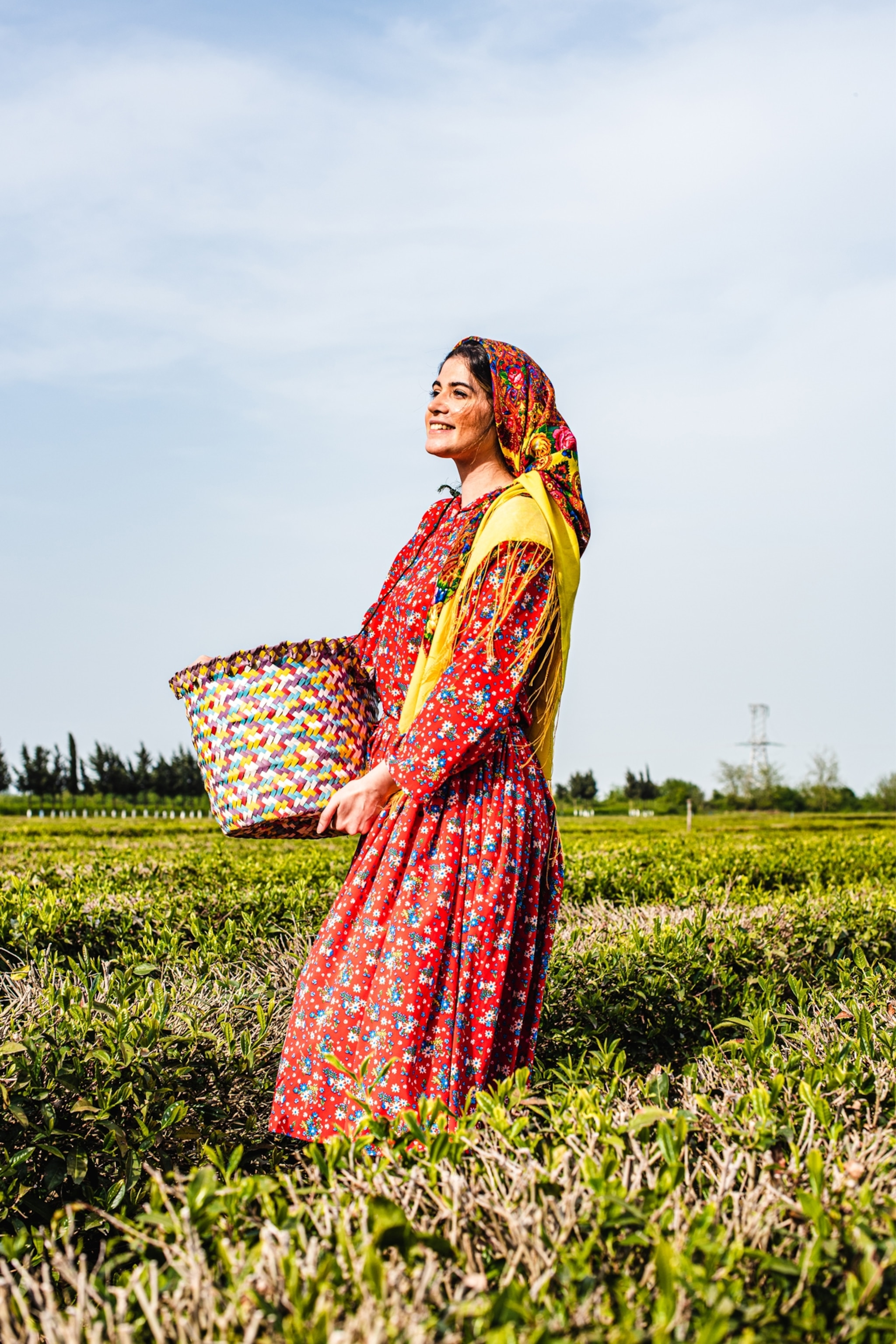On the trail of Azerbaijan's national beverage in Lankaran
Known as 'chay', tea is integral to Azerbaijani life. In southerly Lankaran — the region behind most of the country's supply — discover tea customs that reflect ancient traditions.

As I pass a billboard promoting ride-on tractors, the man in the advert — a grinning farmer with straw hat on head, scythe in hand — looks out of place against the parched backdrop. I’m ricocheting down the Caspian Coast, a pancake-flat stretch of land that’s composed, it seems, of compacted sand and dust. The sea is a vein of blue fuzz on the horizon. Instead of trees here, there are dramatic electrical towers and spindly oil rigs.
Two hours into the drive south from capital Baku, the sun-baked land suddenly erupts with life: initially patchy grasslands, then freshly tilled fields. As orchards come into sight, framed by the wild wetlands of the Gizil-Agach State Reserve, which is renowned for its exceptional birdwatching opportunities, I officially mark my exit from oil land. I’ve arrived in Azerbaijan’s fruit basket; home to its award-winning and internationally-recognised tea.
Situated just over 150 miles from Baku, Lankaran is one of Azerbaijan’s agricultural heartlands. The moisture rises off the sea and crashes against the Talysh Mountains, giving the lowlands a subtropical climate that’s ideal for cultivating the staple crops of rice and citrus fruit. This is one of the few places in the South Caucasus where tea plants flourish. It fuels a nation’s lifestyle.


The tea trade in Azerbaijan has a history that dates back centuries, gaining prominence during the Silk Road era when artisans devised an ingenious method to savour brewed tea on the move. The country’s first commercial plantations were established in Lankaran in 1932 and, since then — much like oil — it’s been a boom-and-bust business, peaking in the 1980s when an estimated 34,000 tonnes of tea were produced annually, then all but evaporating with the collapse of the Soviet Union in 1991. Following Azerbaijan’s independence, determined efforts were made to revive the tea sector. The 2002 Tea Law and a decade-long state programme to accelerate tea production has helped the industry rebuild. Today, Lankaran satisfies 90% of domestic demand.
As I step out of the car, the humidity settles on my brow. Rows of neatly arranged tea plants fan out in all directions, like a wrinkled carpet draped over the furrowed earth. On the Saturday, the Nilado Green tea farm is buzzing with families who have driven from the capital to celebrate the end of Ramadan. It’s an auspicious time of year, but I’m still a few weeks too early for the main event: the harvest session properly begins in May. Today, fields are filled not with tea pickers but with groups of friends snapping selfies.
"People from Baku come here because they want to learn how their tea is made," the tea plantation's founder Araz Yagubov tells me, ushering us past a giant 'I Heart Nilado' sign. "In the past five years, interest in tea picking has grown. People are coming back to nature." Araz founded this 143-acre estate in 2006 by recultivating a Soviet-era plantation. Sensing a trend, he added a tea house, a restaurant and a hotel at the fringe of his fields to cater to tourists.
Their curiosity is understandable: tea is a critical part of everyday life in Azerbaijan, deployed when welcoming guests, brokering deals and to lubricate conversation. Drunk before, during and after meals, tea is always the beverage of choice. “When we make a new family, we start with chay,” Araz tells me, hinting at a matchmaking custom where parents meet over a pot, served extra sweet if it’s going to be a ‘yes’ from the father of the would-be bride. “When someone passes, we share chay, too. It’s everything to our culture.”

In a private room, a table has been laid out for us with teatime accoutrements: sugar bowls, slices of Lankaran lemon, pumpkin jam and airy pumpkin bread. “Drinking tea is the easy part,” Araz continues, sampling a spoonful of jam and taking a swill of tea. “It’s everything that comes before that’s hard work. Some people sleep at night, but not us. We have to take responsibility for the tea.”
When it comes to tea making, Azerbaijanis understand the importance of good water and have been using water purification stones for centuries. Over Araz’s shoulder, an employee attends to a samovar (a metal urn used to boil water). They pour a few centimetres of tawny-coloured tea from a pot then flick the samovar’s silver tap to top-up each one with hot water. Azerbaijani armudu are buxom glasses. The primary reason for the shape, I’m told, is that it helps with the tea’s heat retention.
And there’s a lot of tea to consume: Nilado Green alone produces 80 tonnes annually. Through a process of trial and error, Araz has developed a huge variety of different teas, many of them blended with fruits, herbs and botanicals. When I ask which of them is his favourite, he silently gestures to the pot in front of us: a potent black brew tempered with peaches and barberries.
Draining his armudu and donning his puffer vest, Araz informs me that it’s time to see the factory. It’s not long before we stop at a photo of a woman with a flowery scarf swept around her head. The resemblance is clear: Araz has his mother’s nose. In Soviet times, she was one of Lankaran’s best tea pickers, he tells me. What does she think of her son running his own plantation? “She adores this business. But she also says I work too hard,” says Araz, laughing.


Inside the plantation's demonstration factory, we run through the basics of withering, rolling, oxidation and drying, culminating with a peek inside the dimly lit, temperature controlled fermentation room that Araz refers to as ‘The Womb’. Turning the corner, I find myself in the backstage of a theatre, with sets of loose blouses, flowing skirts and fringed shawls hanging from the walls. One after the other, young women emerge from a cubicle in the corner dressed in tea pickers’ garb. The uniform is based on traditional local dress. It’s a connection to the regional heritage but it also serves a practical purpose as a form of sun protection.
The light is fading as we reach the fields. Araz leads me through the rows, gliding his palms over the second flush. Every now and then, he pauses to prune a withered stem like an attentive father. “We cultivate our teas like we cultivate our children,” he tells me. “It’s the same emotion.”
There are regular flights from Heathrow to Baku. For more information, visit azerbaijan.travel.